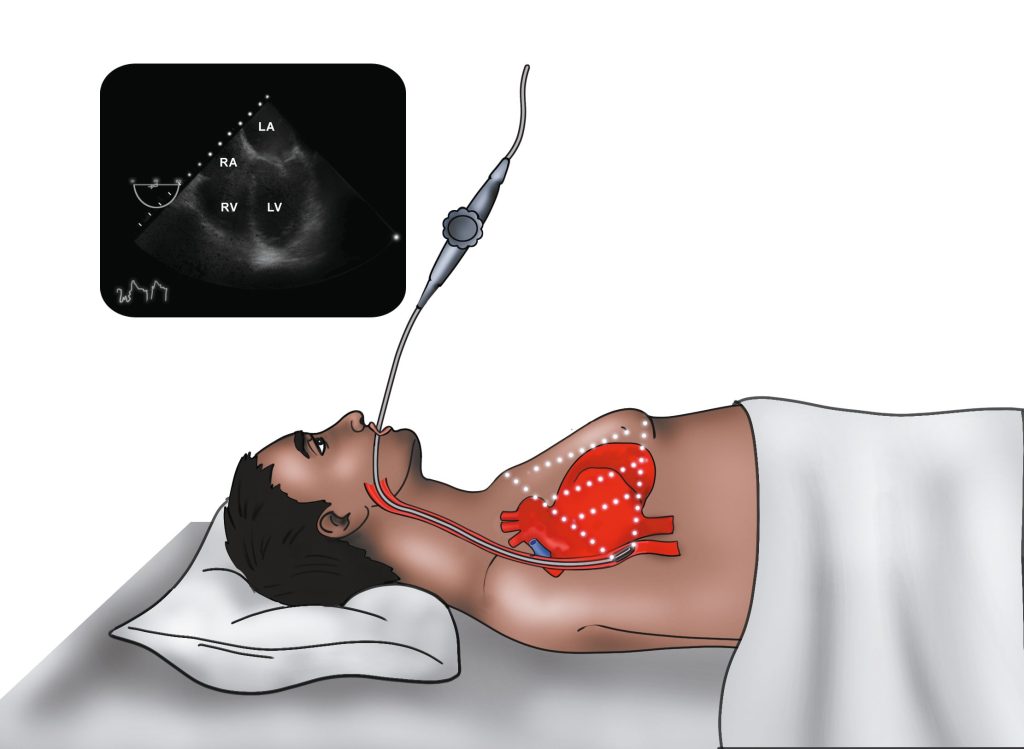
A transoesophageal echocardiogram is not needed routinely but may be necessary to produce more detailed images than conventional echocardiography:
- If there is uncertainty about the severity of the valve disease
- if your cardiologist suspects abnormal function of a replacement valve particularly in the mitral position (mechanical parts often shield the leakage from the ultrasound beam and make it difficult to assess)
- if endocarditis (infection of one or more heart valve) is strongly suspected, even if the diagnosis is not obvious from the transthoracic echocardiogram.
- to plan interventions and repairability of heart valves prior to interventions such as keyhole/transcatheter procedures and valve surgery
The procedure is performed usually as a day-case and usually under sedation. Many patients naturally feel very anxious prior to this procedure. Sedation usually means that the procedure is very well tolerated and often patients are unable to remember it afterwards.
